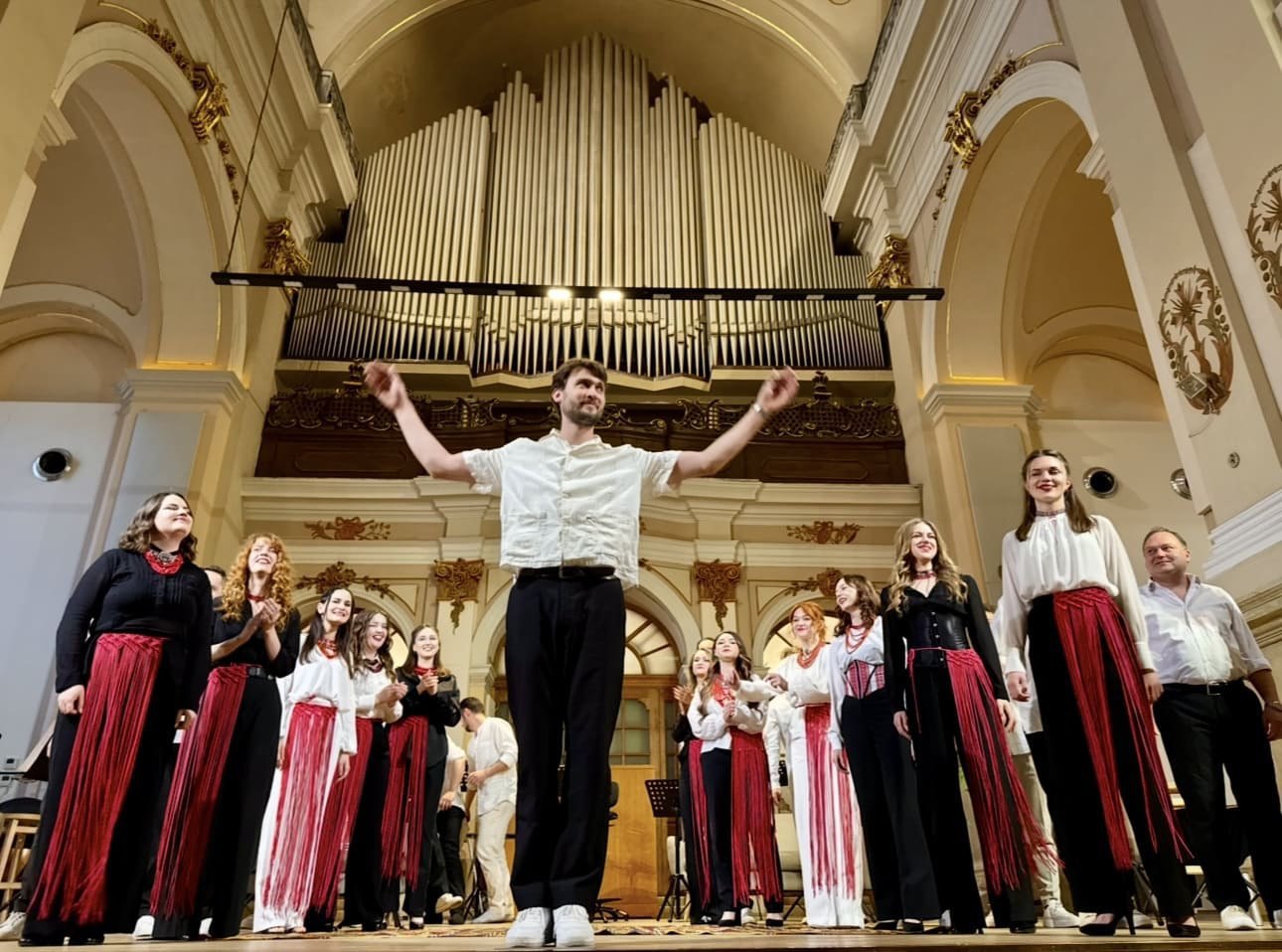
The success that the “Homin” choir is experiencing now resembles the success story of Oleksandr Koshyts’s choir a hundred years ago. Although theirs was abroad, and yours is here. Do you feel like heirs to the traditions of that choir?
Well, I don’t know, that sounds a bit too grandiose. In a certain sense, yes, we do continue the tradition if we talk about choral culture in general, but to say we are heirs of the Ukrainian Republic Capella—that’s a bit much. I know that Oleksandr Koshyts is my fellow countryman. He was born in Romashky, which is about forty kilometers from my village Potoky in Kyiv Region. However, Koshyts’s level as a conductor, in my opinion, remains an unsurpassed greatness. In his time, people wrote and said he was one of the best choral conductors in the world.
@lvivorgan 😎Завершується співочий сезон найкращого хору 2024 року за версією “Укрінформ” — хору “Гомін”! Не пропустіть фінальні концерти, аби зарядитися енергією, драйвом і любов’ю до української пісні! 🎶 Вечори, які вам ще довго будуть снитися: 🔸 2 липня / 19:00 — “Цей хор, цей хор мені щоночі сниться” Ностальгія, ретро, пісні, які знаємо з дитинства — перевірений рецепт гарного вечора. 🔸 11 липня / 19:00 — “Цей фольк, цей фольк…” Гомінкий, справжній — український фольк у виконанні “Гомону”! 🔸 13 липня / 19:00 — “Цей хор, цей хор мені щоночі сниться” Ще одна нагода поринути у світ українського ретро — обіймаємо вас піснею! 💥 Не проґавте — буде яскраво, буде по-справжньому, буде “Гомін”!
♬ оригінальний звук - Львівський Органний
Do you perform any of Koshyts’s arrangements?
During my two years of collaboration with the “Homin” choir, we have not yet performed Koshyts’s music. But we do have some pieces from the Capella’s repertoire, like works by Mykola Leontovych, Yakiv Yatsynevych, and Kyrylo Stetsenko.
Recently, you posted a lullaby “Oy khodyt son” known in Koshyts’s arrangement. Which version did you perform?
I took Vasyl Barvinskyy’s arrangement. It’s a bit more ornate than Koshyts’s and seemed more interesting to me.
Do you think the perception of choral art has changed over the past hundred years?
It depends on what we mean by “changed.” A lot has changed, but specifically about perception, we can only judge by critical reviews. Right now, our choir is experiencing a moment of mainstream popularity, a boom, but we all understand this is temporary. Though we do believe that at least the current level of demand will remain. I think a hundred years ago, people didn’t have the kind of choice we have now when it comes to mass culture or pop culture. At the same time, nowadays it’s much harder to convey choral history because the content has changed significantly.
But it’s also much easier to popularize it thanks to the internet.
Definitely easier, one hundred percent. But in recent days, I encountered a group of slightly older colleagues who find it hard to imagine a choir moving on stage or having mise-en-scène. They also find it difficult to imagine that high art can be popularised through social media. But choral art, like any art form, needs to keep in step with the times. And social media — that's the step we need to take. Though it’s hard for those who don’t understand the technology to grasp it. Still, all musical groups need to actively promote themselves.
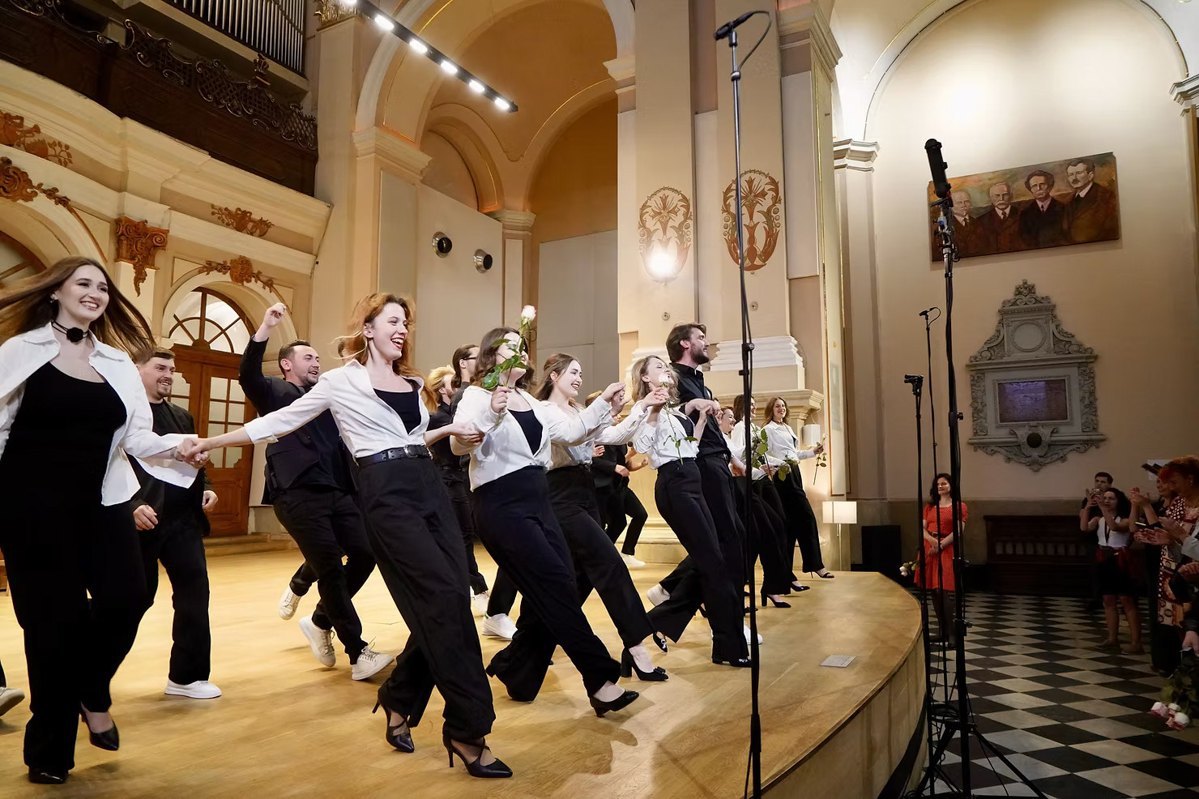
Right now, many people have joined all my social media pages. On Facebook, for example, half a million people viewed and listened to Barvinskyy’s choral arrangement. That’s wonderful! I have recordings of Valentyn Sylvestrov’s choral piece “Farewell, World” from the Requiem, which I considered my most popular video in the last two years with 15,000 views. But now, you put out a 40-second Barvinskyy arrangement and it gets half a million views in just a few days! That’s fantastic!
When I was researching the history of the “Homin” choir, I found out there are two choirs with that name: one in Lviv and one in Kyiv. The Kyiv choir was founded in the late 1960s and suffered repression due to its pro-Ukrainian stance, while the Lviv choir was formed later, in 1988, and had more luck. Is there any connection between these two groups?
There’s no connection at all. The Kyiv “Homin” choir was initiated by Leopold Yashchenko and from the start positioned itself as an ethnographic choir. The Lviv “Homin” choir was immediately created as an academic choir, thanks to Oleh Tsyhylyk, its founder and first artistic director.
Were you acquainted with him?
Yes. We met seven years ago, right after I moved from Kyiv to Lviv. It was always a warm relationship with full support, which I especially appreciated because I initially felt a bit like an outsider in Lviv. Oleh Ivanovych was quite a progressive person in almost all aspects. I remember his funeral was on my birthday, 19 April (2025 — editor’s note), and of course, I went to say goodbye. He was truly a man of an era and a great professional, undeservedly underrated — he had no titles, was neither a professor nor an academician. Yet, he raised a whole generation of specialists. When people talk about the Lviv school of Mykola Kolessa, they should also talk about the school of Oleh Tsyhylyk.
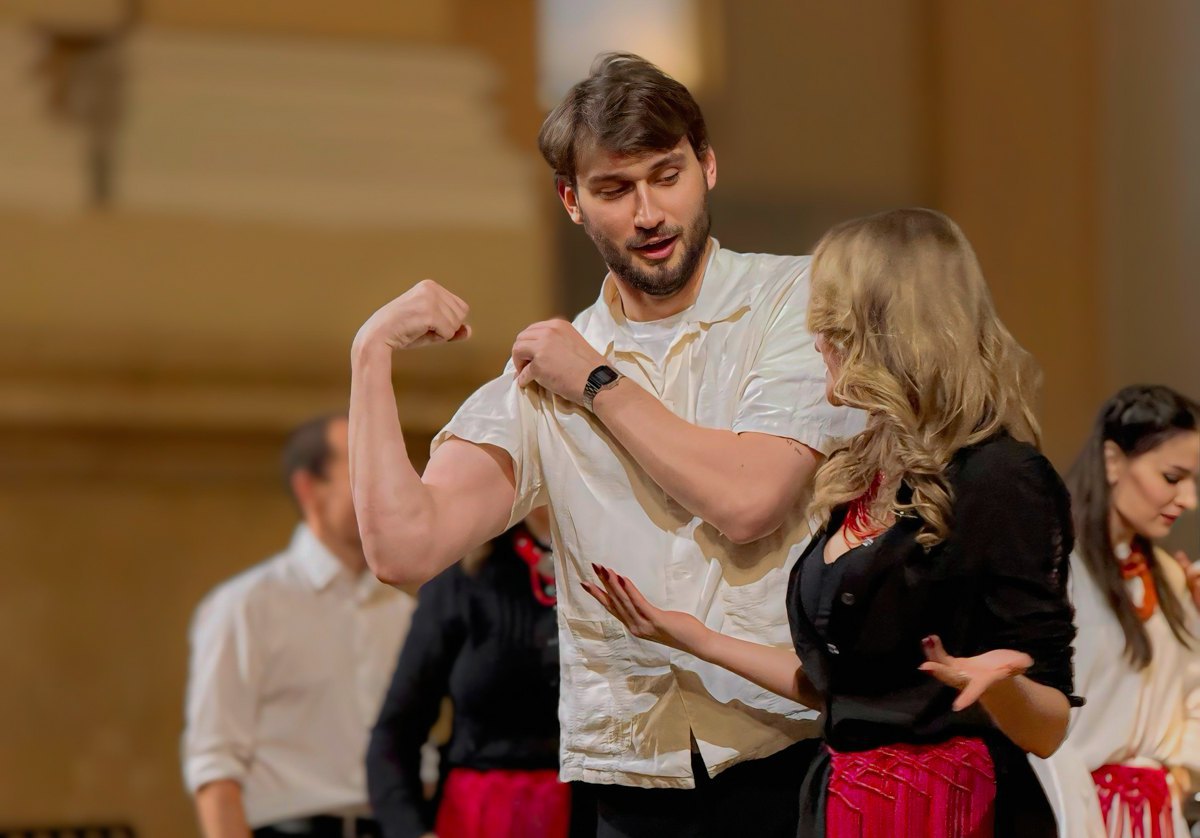
The “Homin” choir is currently part of the Lviv Organ Hall, known for its creative approach to marketing and advertising, thanks primarily to its talented managers Ivan Ostapovych and Taras Demko. How did your cooperation start?
It was March 2023, when the guys from the Organ Hall called me and invited me to do a concert. We prepared a program, and about a month later they contacted me again to discuss a possible permanent collaboration. There’s no doubt that Taras and Ivan are amazing guys and very effective managers. And certainly, the current success of the “Homin” choir is not just my success; it’s a mutual achievement. I’m the artistic director of the choir and fully responsible for the repertoire and personnel policy within the choir. But how everything develops is a matter of our joint discussions and concepts. Taras and Ivan deserve huge respect.
Recently, the choir announced a big project — performing all the choral works of Mykola Leontovych, which total 233 pieces! What is this project about?
It’s a rather difficult and painstaking task. We have a concept and would like to hold several concerts as part of a cycle, inviting different conductors for the performances. There should be four or five concerts. Plus a series of musicological lectures about Leontovych, which will be divided into sub-genres. We’ll start with the Liturgy, with Lviv musicologist Natalka Syrotynska preparing a lecture at the Solomiya Krushelnytska Music Memorial Museum in Lviv.
The collection is divided into parts. We have a huge block of Ukrainian folk song arrangements for mixed choir, two smaller blocks for male choir and for female or children’s choirs. There’s a separate cycle of sacred works, and the Liturgy as well. Another block is his original works, plus the unfinished opera “The Water Nymphs Feast” (for piano, no score available). Accordingly, we want to organize concerts by these blocks.
The problem is, we have everything planned until 2027 (Leontovych’s 150th birthday), so there’s not much time left. Meanwhile, alongside our performances and nationwide tour, we will also work on Leontovych. It will be hard, but when if not now? While we are young — we must do it all. Because announcing it with such fanfare and not delivering would be very bad.
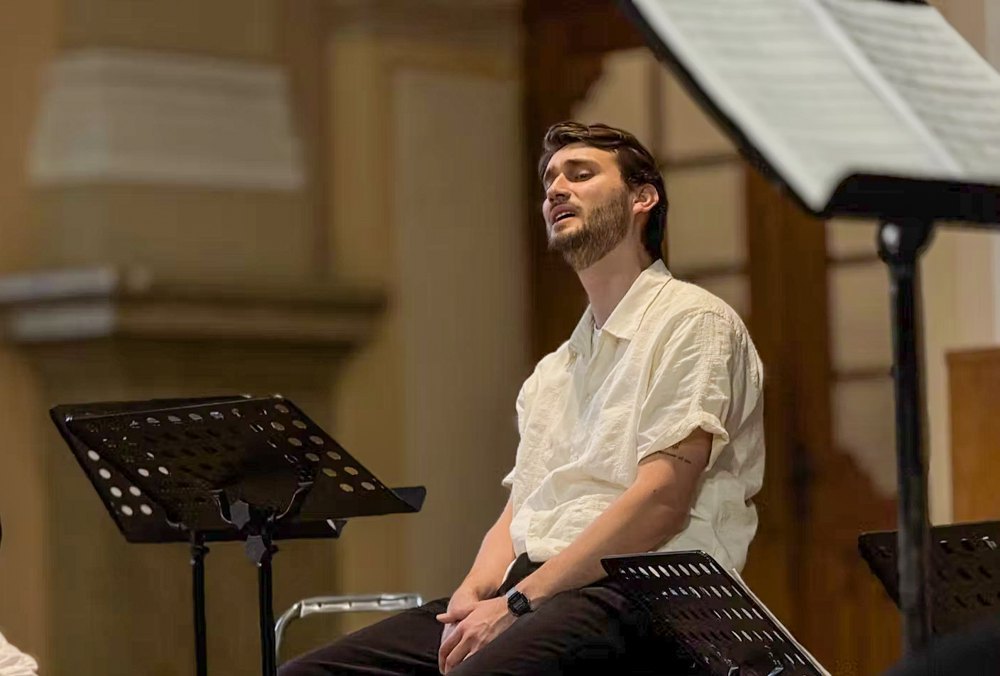
Has this Leontovych collection been published?
Yes, it was published by the All-Ukrainian Choral Union under the leadership of Oleksandr Tarasenko, who patronised the whole process. Many people are involved in this.
Has anyone performed all these works before you?
Pavlo Ivanovych Muravskyy performed some with his student choir at the conservatory, but they recorded only about forty pieces. I would gladly listen to those recordings, but they are not easy to find now.
What is the most difficult thing about Leontovych’s works to perform?
I think there’s no more challenging genre than the choral miniature. You constantly have to dig and search for forms. Most often, we face sound problems. Here you also have to work with form, not just sound. Leontovych is definitely a master of the choral miniature. But except for “Shchedryk,” few know his other works. Even specialists hardly name more than twenty arrangements. There are many titles completely unknown to anyone. So it’s not easy. But we will try. I think this will be a very useful project both for a wide audience and for specialists and students.
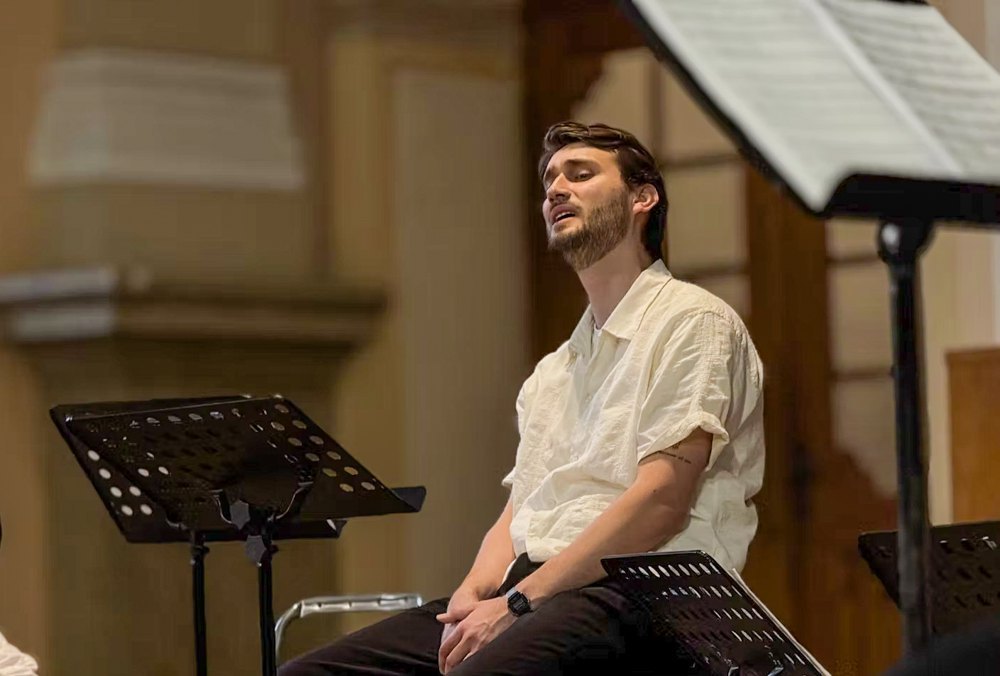
Is performing the Liturgy easier?
It depends. The Liturgy is familiar material for all choral musicians, almost standard repertoire. There are the famous “Our Father,” “In Thy Kingdom.” I have performed these many times as a church choir director and when I was a student studying under Viktor Petrychenko at the Kyiv Conservatory.
You mentioned Valentyn Sylvestrov. Do you plan to perform works by other contemporary Ukrainian composers?
That is already underway. Recently, we met Svyatoslav Lunyov. To me, he’s one of the most promising composers in terms of choral music. We’re expecting a piece from him, we don’t know what it will be, but he said, “Guys, I’m already writing.” We’ve also talked with Iryna Aleksiychuk — I really like her style. I adore Viktoriya Polyova. Viktor Stepurko sent me scores of pieces not performed yet. Just recently, we will premiere Oleksandr Rodin’s “Requiem” for organ and soprano solo — this music was commissioned by the Lviv Organ Hall. I believe ensembles must be the locomotives in this story. Composers shouldn’t be the ones going around with scores asking, “Please perform our compositions.” It’s the ensembles that must be interested, they should commission new works, and pay for them, as happens in civilised countries. If my colleagues read this interview, I want to emphasize once again: commission music from Ukrainian composers! It is very necessary.
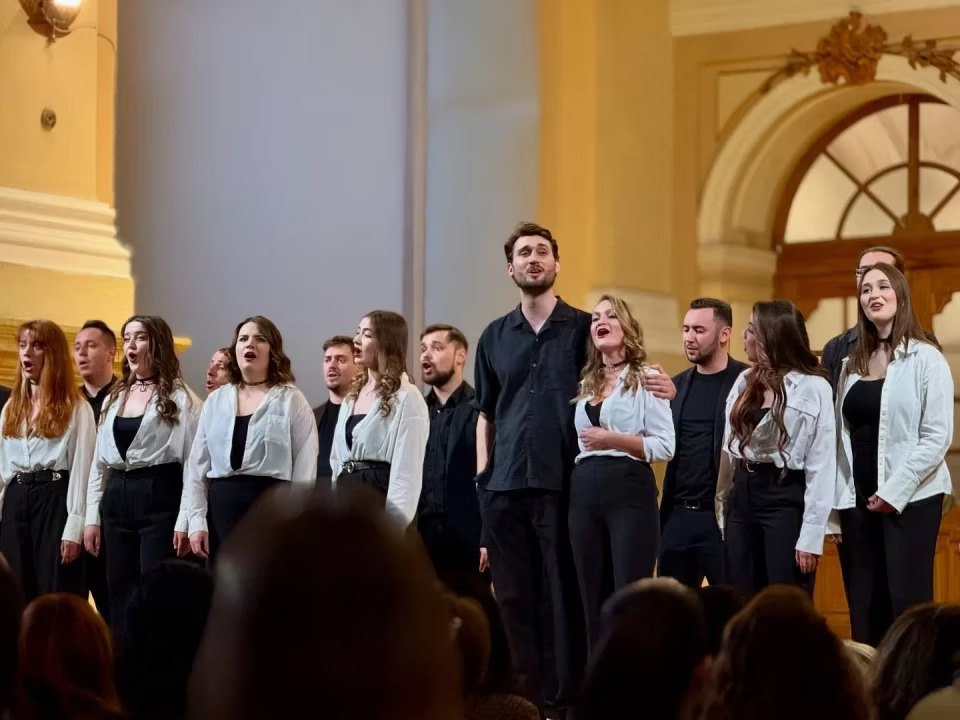
How do you feel about musical criticism? Do you take criticism personally?
You know, I used to think I took criticism lightly, but in the context of the past few weeks, I thought about it more. No, I’m okay with criticism. I really appreciate professional comments, especially in the context of dialogue, during direct communication. As for Ukrainian musical criticism in the media in recent years, I think it’s on a pretty good rise. I read reviews of opera performances in which I participate as a choirmaster — it’s quite interesting to read, and I like how it develops. I’m glad that musical and theatrical criticism is developing in a normal, adequate way.
What bothers me is when people who do nothing start commenting — this “sofa expertise.” I understand I shouldn’t pay attention, but somehow it scratches the soul.
What do you mean exactly?
Some find it hard to accept that we use social media like Instagram and TikTok to promote our brand, saying it’s “not Orthodox.” But I know it works and will have an effect. We started working with even greater activity, developing a communication strategy.
I’ve said this before and will say it again for my colleagues, especially those who criticize social media: we must eliminate “concerts for friends” forever. That is when musicians perform for their friends and relatives and buy the tickets themselves. It’s absurd: they spend half their lives getting musical education, prepare programs, but don’t think about who will actually listen! And a few days before the concert, they see only four tickets sold and start complaining — “Hey, here’s 20 tickets, and here’s 20, distribute them quickly among friends.” That kills culture.
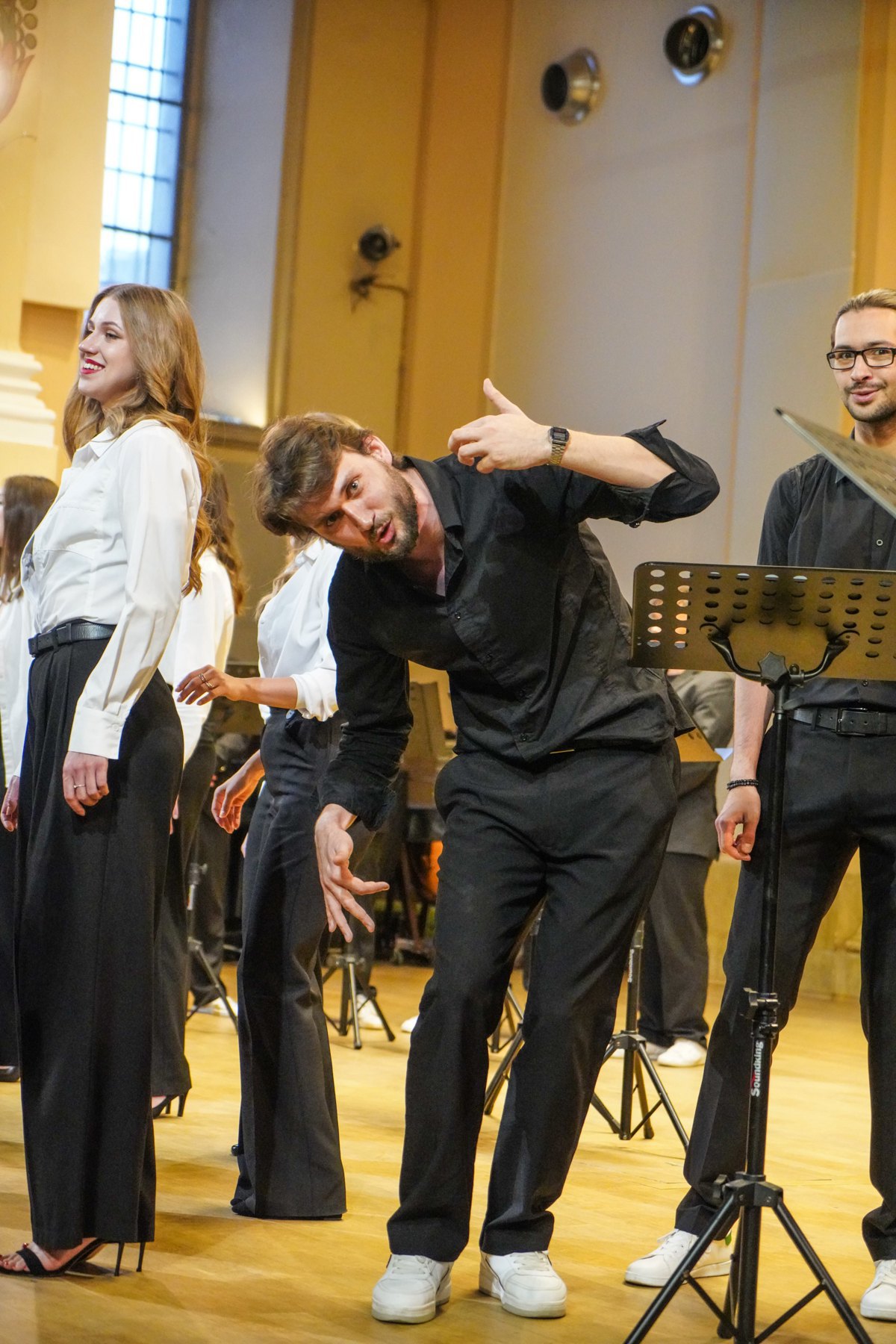
Stop doing free concerts! Stop bringing your friends! No, bring them, but only after the hall is fully worked out, after spending money on marketing and advertising. Work with the public! Work with different ages, genders, hipsters, pensioners, businessmen; attract people to concert halls and make them come and listen. If you need to use Instagram or TikTok for that — do it! When you work on your own brand, you automatically promote Ukrainian culture. Because if you sit in your shell, performing the same thing for fifty years and don’t attract any new audience, you will keep complaining it’s unfair to gain popularity through Instagram. Attract Ukrainians to Ukrainian culture — then the boom that is happening now with the “Homin” choir will last not only with us.
